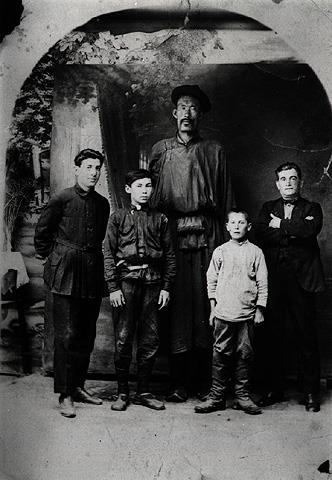
The Jewish Community of Mongolia
Mongolia
Монгол Улс / ᠮᠤᠩᠭᠤᠯ ᠤᠯᠤᠰ
A state in East Asia. Mongolia is bordered on the north by Russia, and on the south by China.
21st Century
Estimated Jewish population in 2018: less than 100, mainly Israeli expatriates who live in the country temporarily, out of 3,200,000.
Монгол Улс дахь жид үндэстэн - The Jewish Community of Mongolia
HISTORY
Jewish families from Siberia traded in Mongolia at the end of the 19th century, and a few ended up settling there. A number of Russian Jews fleeing the civil war between 1918 and 1920 crossed Lake Baikal to settle in Outer Mongolia. Some of these Jews were very successful and managed to be integrated into the Mongolian society. One of these Jews, Baron Zanzer was accepted to the ranks of the Mongolian nobility and changed his name in honor of Öndör Gegeen Zanabazar (lived in the 16th century), the first Bogd Khan and the spiritual leader of the Tibetan Buddhism in Outer Mongolia. The Jewish community was annihilated in 1921 by the anti-Bolshevik White Russians under the leadership of Baron Roman von Ungern-Sternberg, a notorious anti-Semite Russian nobleman of German origin who believed all Jews were supporters of Communism. He pursued even fleeing Jews and killed everyone.
Ulaanbaatar (formerly Urga, also known as Ulan Bator), the capital of the Mongolian People's Republic, had a community of 600 Russian Jews in 1926. Many worked as watchmakers, jewelers, barbers, furriers, and construction workers. Additionally, that same year a Russian-Jewish journalist learned that there were 50 newly-settled Jewish families in a deserted area of Outer Mongolia, approximately 200 miles from the Manchurian border. There were also a number of Jews among the Soviet specialists sent to Mongolia. Other Jews visited Outer Mongolia from the Manchurian town of Hailar during the 1920s, but these were seasonal visits in order to buy furs and other domestic products, and they did not take up permanent residence in Mongolia. Despite some Jewish presence in Mongolia during most of the 20th century, no Jewish community or any other Jewish organization could be established in that country because of the anti-religious repression of the Communist regime.
Most of the Jews who settled in Mongolia assimilated into Mongolian life, and many married Mongolian men and women. With the collapse of the Soviet Union in 1991 and the end of Communism in Mongolia that same year, a number of children from these mixed families immigrated to Israel.
In 2003 the Mongol-Jewish Cooperation was formed, and launched a website that dealt with topics related to Judaism and Israel. The organization's leader, Sumati Luvsandendev, stated that "there are enough fingers on two hands to count all Jews who live here."